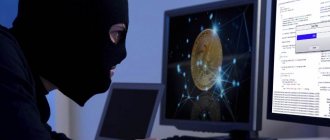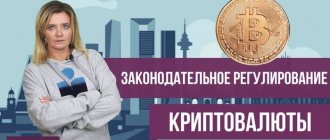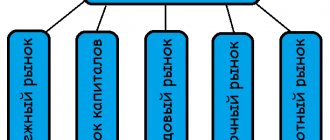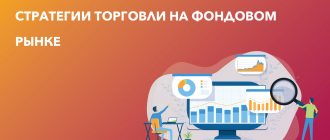On July 31, Federal Law No. 259-FZ “On digital financial assets, digital currency and amendments to certain legislative acts of the Russian Federation” was published.
The bill was submitted to the State Duma at the beginning of 2022 - and it was initially assumed that it would only regulate the procedure for the issuance and circulation of digital financial assets - “tokens”. It was very quickly adopted in the first reading and after that “frozen” - at some point, deputies said that they generally wanted to abandon the regulation of the circulation of tokens and cryptocurrencies.
However, after some time, consideration of the bill returned to the State Duma agenda.
In parallel, the issue of circulation of tokens and cryptocurrencies was considered by the FATF, as a result of which recommendations emerged on amending national regulation in the field of financial monitoring.
As a result, earlier this year the bill was adopted in the second reading with significant changes in terms of regulation of cryptocurrencies. It was proposed, in principle, to prohibit the issuance and circulation of cryptocurrencies with the establishment of administrative and criminal liability for any direct or indirect participation in such activities.
But such tough measures aroused criticism from experts and businesses, and they were not included in the final version of the law (which does not exclude the possibility that these measures will subsequently be established by a separate federal law regarding cryptocurrencies).
The law comes into force on January 1, 2022, with the exception of certain amendments to the Federal Law “On Combating Money Laundering and the Financing of Terrorism,” which come into force 9 days later.
Below is a brief overview of the main provisions of the law.
Concepts
The full name of the Federal Law of July 31, 2020 No. 259-FZ (hereinafter referred to as Law No. 259-FZ) is “On digital financial assets, digital currency and on amendments to certain legislative acts of the Russian Federation.” It came into force on January 1, 2021 .
The purpose of Law No. 259-FZ is to legislatively consolidate in the Russian legal field the definitions of the currently most widely used financial assets created and/or issued using digital financial technologies. This:
- distributed registry of digital transactions;
- attracting investments by Russian legal entities and individual entrepreneurs by issuing tokens, which are one of the types of digital financial assets.
Digital financial assets
These are digital rights, including monetary claims, the ability to exercise rights under issue-grade securities, the right to participate in the capital of a non-public joint-stock company, the right to demand the transfer of issue-grade securities, which are provided for by the decision on the issue of digital financial assets in the manner established by Law No. 259-FZ.
Their release, accounting and circulation are possible only by making (changing) records in an information system based on a distributed registry, as well as in other information systems.
Digital financial assets are not legal tender on the territory of the Russian Federation.
Rights certified by fin. digital assets arise from their first owner from the moment a record of the crediting of such assets to him is made in the system. Individual entrepreneurs and organizations will be able to make these entries.
There is no complete list of transactions that can be made with digital financial assets in Law No. 259-FZ . But what is mentioned here, in particular, is the purchase and sale and exchange for the same assets of a different type.
Digital currency
This is a collection of electronic data (digital code or designation) in an information system that offers and/or can be accepted as
- a means of payment that is not a monetary unit of the Russian Federation, a monetary unit of a foreign state and/or an international monetary or payment unit;
- and/or as an investment.
In relation to them, there is no person obligated to each owner of such electronic data. Exception: the operator and/or nodes (users) of the information system are obliged only to ensure compliance of the procedure for issuing this electronic data and the implementation of actions in relation to them to make (change) records in such an information system with its rules.
Digital currency does not include (letter of the Ministry of Labor dated December 16, 2020 No. 18-2/10/B-12085):
- bonus points;
- bonuses on accumulative discount cards accrued by banks and other organizations for using their services, including in the form of cash (cashback).
For the purposes of the Federal laws on bankruptcy (dated October 26, 2002 No. 127-FZ), on enforcement proceedings (dated October 2, 2007 No. 229-FZ), on anti-corruption (dated December 25, 2008 No. 273-FZ) and on combating money laundering (dated 08/07/2001 No. 115-FZ) digital currency is property . a penalty may be brought against her in the general manner.
You cannot accept payment for goods, works and services in digital currency . This applies, in particular, to Russian companies. Moreover, it is prohibited to disseminate information about the offer and acceptance of digital currency as a method of payment for goods, works and services.
Rights to digital currency can be protected in court under certain conditions . Condition: the owner reported that he has such currency and he made transactions and transactions with it. The procedure for informing will be prescribed in the Tax Code of the Russian Federation.
Information systems in which digital financial assets are issued can also issue digital rights that simultaneously include such assets.
Law No. 259-FZ does not contain the concepts of cryptocurrency (ultimately - digital currency), token (ICO - Initial Token Offering), miner, digital wallet, as well as an electronic agreement - smart contract, although they were originally planned.
The law recognizes operators of information systems in which digital financial assets are issued and exchange operators as non-credit financial organizations.
Distributed ledger
According to paragraph 7 of Art. 1 Law:
For the purposes of this Federal Law, a distributed registry is understood as a set of databases, the identity of the information contained in which is ensured on the basis of established algorithms (algorithm).
This definition is in no way a definition of a distributed registry in the traditional sense; formally, any set of databases in which replication is carried out and or periodically backups are performed falls under it. It should be taken into account that any databases, like software in general, operate on the basis of established algorithms. That is, formally, any system in which several databases synchronize data from the point of view of the Law is a “distributed registry”. Any banking information system will formally be considered a “distributed registry” from 01/01/2021.
Of course, the real definition of a distributed ledger is quite different.
Thus, the ISO 22739:2020 (en) Blockchain and ledger distribution technologies - dictionary standard gives the following definition of blockchain and distributed ledger:
Blockchain is a distributed ledger with confirmed blocks organized into a sequentially added chain using cryptographic links.
Blockchains are organized in such a way as to prevent changes in records and represent complete, defined, immutable records in the ledger. A distributed registry is a registry (of records) that is distributed across a set of distributed nodes (or network nodes, servers) and synchronized between them using a consensus mechanism. The distributed registry is designed in such a way as to: prevent changes to entries (in the registry); provide the ability to add, but not change records; contain verified and confirmed transactions.
It seems that in this Law the erroneous definition of a distributed registry was given not accidentally, but deliberately, as evidenced by the requirements set out in the law for what is designated as an “information system”, and which also includes “information systems based on a distributed registry”. These requirements are such that in this case we are clearly not talking about a distributed registry in the generally accepted sense of the term.
Areas of regulation
Law No. 259-FZ regulates:
- issuance, accounting and circulation of digital financial assets (taking into account the provisions of the Law on the Securities Market of April 22, 1996 No. 39-FZ on equity securities);
- features of the activity and responsibility of the operator of the information system in which the release of these assets occurs, and the operator of their exchange;
- circulation of digital currency in Russia.
Also, Law No. 259-FZ contains requirements for the decision to issue digital financial assets. the procedure for maintaining the register of users of the information system and the rules for the exchange of digital financial assets, the procedure for their approval.
The requirements of Law No. 259-FZ do not apply to:
- circulation of non-cash and electronic money;
- issue, accounting and circulation of uncertificated securities.
What is left beyond the adopted bill?
The adopted bill is a breakthrough for Russia. Most importantly, it recognizes cryptocurrencies and other digital assets as legitimate. This is a significant step towards bringing cryptocurrencies out of the gray area; digital assets are no longer ignored by law.
However, cryptocurrencies have not been fully integrated into the Russian legal framework, and legislators have work to do. The adopted bill will become the basis for all other bills to regulate the crypto industry.
The following issues remain outside the scope of the bill:
- Definition and regulation of mining;
- Rules for the issuance and circulation of cryptocurrencies in Russia, the exchange of digital assets for fiat funds (primarily for rubles);
- Taxation and declaration of cryptocurrencies;
- Responsibility for violation of the provisions of the bill.
The text of the document contains a reference to the fact that all these issues will be regulated by separate bills. It is likely that they will contain much more prohibitions and restrictions. We will not be surprised if they also introduce criminal liability for the illegal circulation of digital currencies.
“The current digital assets bill contains nothing more than basic provisions and definitions. I would call this an introductory part to the main bill. It seems to me that the State Duma is acting within the framework of its bureaucratic logic, according to which the president ordered it to adopt the law on CFA, and it carried it out as best it could ,” noted Maria Stankevich, director of business development at the EXMO cryptocurrency exchange.
The adopted bill is a compromise between a complete ban on cryptocurrencies and their complete legalization. There is no criminal prosecution for their use, which was assumed by the previous version of the document. Also missing from the text are provisions allowing the receipt and transfer of digital assets only by inheritance, in bankruptcy or in enforcement proceedings. The worst fears were not confirmed.
“For regulation advocates, the bill showed that legislators are working to determine the status of digital assets, while businesses received evidence that legislators are willing to discuss initiatives and are not pushing for hard decisions. At the same time, the law still left the situation with classic decentralized cryptocurrencies gray - no ban, no legalization. To regulate them, it is expected that additional acts will be adopted ,” noted Viktor Argonov, an analyst at the EXANTE broker.
Include in expense details
On January 1, 2022, changes to the Federal Law of December 3, 2012 No. 230-FZ “On control over the compliance of the expenses of persons holding public positions and other persons with their income” came into force. According to them, certain categories of persons are required to provide, in the prescribed manner, information about their expenses, as well as the expenses of their spouse and minor children for each transaction for the acquisition, including digital financial assets and digital currency.
Considering that the status of digital financial assets and digital currency in the Russian Federation was established only from 01/01/2021, the corresponding transactions for their acquisition must be reported for the first time for the period of 2021 (letter of the Ministry of Labor dated 12/16/2020 No. 18-2/10/B-12085) . First of all, this applies to substitute state and municipal employees.
Decree of the President of the Russian Federation dated December 10, 2020 No. 778 with measures to implement certain provisions of Law No. 259-FZ approved the form “Notification of the availability of digital financial assets, digital rights, including simultaneously digital financial assets and other digital rights, utilitarian digital rights, digital currency.”
It is filled out by applicants for federal civil servant positions. And from July 1, 2021, information on digital financial assets, rights and currency must be submitted as part of an updated certificate of income, expenses, property and property-related obligations.
How the adoption of the law will affect the crypto industry in Russia
While there is no need to expect tangible changes in the Russian crypto market, the bill still leaves many questions.
The biggest misunderstanding is the ban on paying for goods and services with cryptocurrencies. So far, according to the text, it turns out that any individual or legal entity accepting payment or paying in cryptocurrencies is recognized as a violator. The document outlaws a huge number of crypto users without offering any alternatives.
It is also unclear how the declaration will be verified and how the tax will be collected. We have already written about how difficult it is to determine the tax base for cryptocurrency assets. To implement the requirements of the bill, additional regulation will be required, as well as monitoring of exchange transactions.
The need to declare cryptocurrencies looks like a continuation of the fight against money laundering and gray wage schemes, actively carried out by the Tax Service under the leadership of its former head Mikhail Mishustin. At the same time, the bill does not give users any motivation to declare their crypto assets and come out of the shadows.
In general, the requirements for DFA exchange operators are similar to the requirements for participants in the traditional financial market. It is assumed that licensing of DFA exchange operators will lead to clearing the market of small companies that are not ready to work with the regulator. This should further highlight the benefits of regulated platforms for users, insuring them from many risks. However, it is not yet clear whether exchanges and banks, previously distant from DFAs, will be interested in them. Many startups will simply refuse to enter the Russian market. Therefore, you should not expect a sharp increase in the number of DFA exchange operators.
“As for the status of crypto exchangers and exchanges, until the conditions for the circulation of digital currencies are detailed, entrepreneurs are unlikely to risk opening such a startup in Russia ,” noted Viktor Argonov.
Maria Stankevich believes that even in its current form, the adopted bill is a big step forward.
“After the previous prohibitive versions of the bill, there was a huge fear on the international market of getting involved with Russia and companies that have a huge number of users from Russian users. Now everyone has exhaled ,” the expert said.
Requirements for shareholders and managers of DFA operators
For DFA exchange operators, additional requirements are established in the form of an authorized capital amount of at least 50 million rubles. and a similar minimum net asset size. Also, participants in this type of operator cannot be legal entities registered in states that provide preferential tax treatment or do not provide for the disclosure and provision of information when conducting financial transactions (offshore).
Persons who have the right to control more than 10% of the votes of business entities that are operators of both of these types must meet the requirements for business reputation. If persons who do not meet these requirements are identified, the Central Bank sends a request to eliminate the violations within 30 days. 90 days are given to eliminate the violation. Until the violations are eliminated, the specified person may control no more than 10% of the votes.
How to increase investments in IT insourcing by one and a half times
IT in banks
A legal entity cannot act as the sole executive body of the operator of the information system in which the DFA is issued, just like the operator of the DFA exchange. Also, the functions of the sole executive body of both of these types of operators cannot be transferred to a commercial organization or an individual manager.
Persons performing the functions of the sole executive body of operators of information systems in which issuance is carried out, and operators of DFA exchange, as well as their chief accountants, heads of internal control services, members of collegial executive bodies and collegial management bodies, must have higher education and experience in relevant area.
These positions cannot be filled by: persons with outstanding convictions; persons for whom the period of disqualification in administrative cases has not expired; persons who performed the functions of the sole executive body and member of the collegial executive body of financial organizations during the year before the revocation of their license (if five years have not passed since the revocation of the license); persons who have been brought to administrative responsibility two or more times over the past three years for unlawful actions during bankruptcy; persons who, during the previous five years, have been prosecuted for unlawful actions in bankruptcy; persons from the list of individuals and legal entities in respect of whom there is information about their involvement in extremism; persons in respect of whom Rosfinmonitoring has made decisions to freeze funds.
Operators of information systems in which DFAs are issued, just like DFA exchange operators, inform the Central Bank about the persons occupying these positions, as well as about their departure. If persons occupying these positions do not comply with the requirements of the law, the Central Bank has the right to demand that the violations be eliminated.











